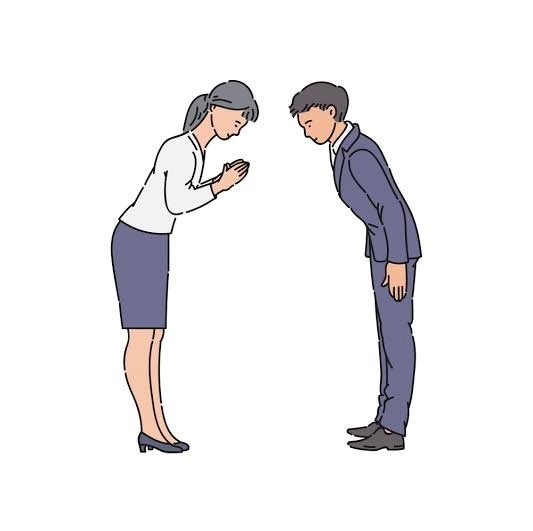One of the most powerful lessons we can teach and model for our children is this: other people’s boundaries matter.
From a young age, children must be taught that when someone says “No,” “Stop,” or “I don’t like that,” it matters. It must not be ignored, laughed at, brushed off, or pushed aside. Whether it’s their sibling, a classmate, a friend, or even a parent, a clear “No” or “Stop” should immediately signal pause, reflection, and respect.
This lesson isn’t just about manners, it’s about shaping a future adult who will:
- Understand consent well.
- Honour the dignity of others.
- Read and respect emotional cues.
- Create safe spaces for relationships to thrive.
How many adults today trample on boundaries because no one ever paused long enough to teach them this lesson when it was just child’s play?
That tickling game you didn’t stop when your child shouted “Stop!”
The hug from aunty they were forced to give when they weren’t comfortable…
The refusal to let them say “No” to a game they didn’t want to play…
They were all building blocks, one way or another.
Let’s build better. Let’s teach our children that “No” means no, and “Stop” is a complete sentence.
Recently, I noticed a perfect time to teach my sons, particularly my first, the virtue of respecting people’s “No” and “Stop.”
He was playing with his younger brother, John, who clearly didn’t enjoy what was happening. John began shouting, “Stop that! Ezekiel, stop, don’t touch my head!” But Ezekiel, caught in the thrill of play, continued. Poor John was so frustrated that he burst into tears. As I observed, I realized that Ezekiel was aware that what he was doing wasn’t nice, yet he chose not to stop, not because he was intentionally being unkind, but because he had not yet learned how to show empathy when it comes to respecting boundaries.
So, I saw my window, not just to correct, but to build. I sat him down and we had a conversation about it, I explained in simple words how important it is to listen when someone says “No” or “Stop.” I told him, “It’s not just about you having fun. It’s about caring about how the other person feels.”
By the end of that day, something beautiful happened. Ezekiel added a new phrase to his vocabulary and a virtue to his heart:
“Mummy said you should respect people’s No!”
I smiled. The seed had taken root.…
Be Discerning: Parenting with the Spirit
While we’re still on the subject of respecting boundaries, I just feel the need to quickly draw a balance. Discernment is critical in parenting. Not every “No” from a child is rebellion. Not every boundary is defiance. Sometimes, they are alerting us, even unknowingly, to something our natural eyes can’t see.
Respect does not mean relinquishing our role as parents. It means ruling by the Spirit. Teach them to honour boundaries. But more importantly, allow yourself to follow the Holy Spirit’s lead, even when it looks unconventional. This is where we lean not just on logic or modern parenting theory, but on the Holy Spirit, our ultimate Counselor.
One day, Ezekiel woke up and firmly said he didn’t want to go to school. Now, we’ve had a few “lazy mornings” here and there, but this one felt different. He wasn’t whining, he wasn’t stalling. He was firm. He said, “I’ll go tomorrow, but not today.”
If you know Ezekiel, you know he loves school. He loves his classmates, and on his lazy days, all it takes to lift his mood is, don’t you want to see so-and-so?” …and he’s all excited again.
But that morning, he said calmly, “No. I’ll see them tomorrow.” I just knew deep down, that this wasn’t one of those days to push.
The Holy Spirit had been whispering too: it’s okay. Let him stay.”
So I respected his “No.” Not because I’m raising a child to be ruled by feelings, but because I’m raising one whose spirit I must also, with the help of the Holy Spirit, guide wisely.
Only God knows what was up with that day, but I’m so grateful I listened.
God Models This Too
Do you know that even God, in His absolute authority, models consent?
He didn’t have to. We are the works of His hands, created for His pleasure and glory. Yet, He gave us a will. He gave us choice. He said in Deuteronomy 30:19 “I call heaven and earth to witness against you today, that I have set before you life and death, blessing and curse. Therefore choose life, that you and your offspring may live…”
Even salvation, which came at a very high price, the death of very Son of God isn’t forced upon people. Not even His precious Holy Spirit comes to dwell in us uninvited. God is such a ‘Gentleman’ (I know He’s not a man, but you get the point…).
Boundaries are not worldly ideas. They are biblical wisdom. Jesus respected people’s responses, even when they rejected Him.
When the rich young ruler walked away, Jesus didn’t chase after him. (Mark 10:17–22)
When towns refused to welcome Him, He left. (Luke 9:51–56)
Even the Holy Spirit can be grieved, which tells us that God recognizes honour and restraint.
Why Teaching Boundaries Matter
Teaching a child to honour a “No” is about more than just obedience, it’s about building a heart that understands boundaries, empathy, and dignity. It’s how we raise sons and daughters who grow into safe adults, ones who don’t bulldoze others emotionally, physically, or spiritually.
But we don’t stop at teaching our children to respect others’ “No”, we model it too.
It matters that we respect theirs, especially when it comes to things that cause discomfort or emotional pain, as long as it doesn’t jeopardize their health, safety, or purpose.
Practical Examples from the Home
- Teach them to ask before touching someone or taking something, not because they’re being punished, but because every person deserves to feel safe.
- As parents, let’s not force affection. I love hugging my boys, but many times, I ask:
“Big hug for mummy?”
“Do you want to hug mummy?”
It doesn’t make me less of a mother, but it makes them more secure in themselves. Don’t take this too far; sometimes I simply pick them up and give them a big mama bear hug, but many times, I also ask for it. Let the wisdom of God guide you.
Empowering Children to Set and Protect Their Boundaries
When we teach children to respect others’ boundaries, we’re also empowering them to set their own boundaries with confidence. By consistently respecting their “No” and “Stop,” we are setting the stage for them to learn that their feelings, needs, and preferences matter just as much as anyone else’s.
And here’s the most beautiful part: because we’ve modeled what it looks like to respect their boundaries, they are more likely to approach us when theirs are threatened. They will know that we honor their “No,” and that we are a safe place where their voices will be heard.
For instance, as I continue to teach my sons about boundaries, I’ve noticed that Ezekiel, after being corrected, began to speak up for himself more in situations where his comfort was being compromised. He now says things like, “Mummy, I don’t want to do that,” or, “that hurts, please stop,” and I respect his choice, because I know that it’s a reflection of the strong, confident adult he is on his way to becoming. Again, please, let the wisdom of God guide you, don’t confuse respecting boundaries with indulging or ‘spoiling’ your child.
Scriptures to Meditate on:
- “Love does not dishonor others, it is not self-seeking, it is not easily angered, it keeps no record of wrongs.” (1 Corinthians 13:5)
- “Not looking to your own interests but each of you to the interests of the others.” (Philippians 2:4)
- “So in everything, do to others what you would have them do to you, for this sums up the Law and the Prophets.” (Matthew 7:12)





